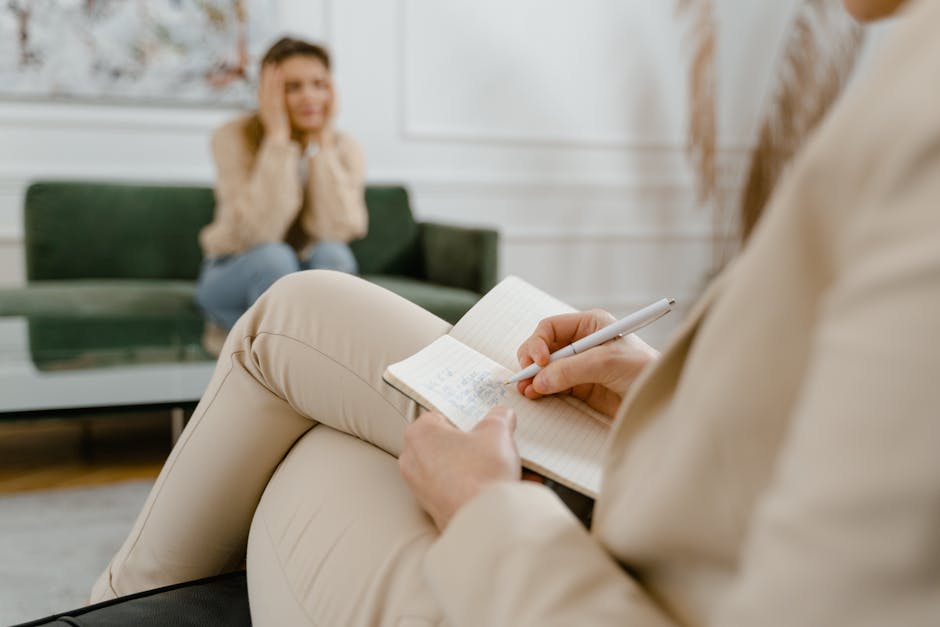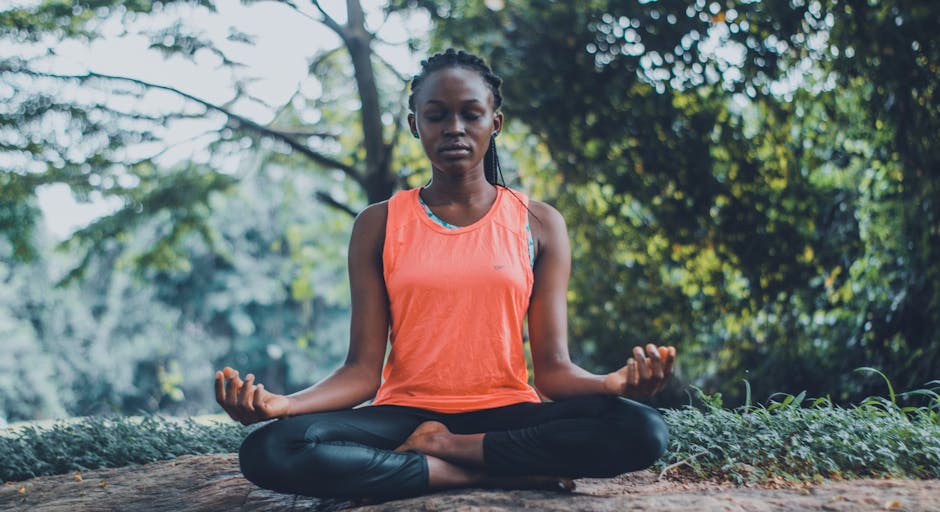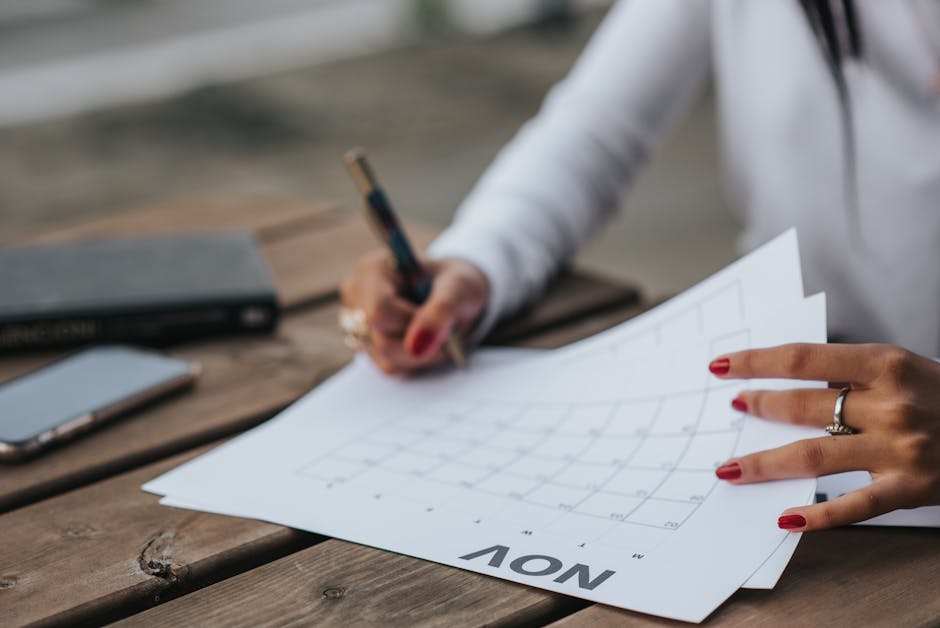Zen and the Art of Anxiety Management
The Rise of Alternative Anxiety Treatment: A New Path to Healing

Alternative anxiety treatment options are gaining recognition as effective solutions for the millions struggling with anxiety disorders. Here are the most evidence-based approaches:
Top Alternative Anxiety Treatments:
- Psychotherapy - CBT, DBT, EMDR (often more effective than medication)
- Lifestyle Changes - Exercise, sleep optimization, nutrition, stress management
- Mind-Body Practices - Meditation, yoga, breathing exercises, massage
- Natural Remedies - Chamomile, lavender, L-theanine, magnesium, omega-3s
- Advanced Therapies - Ketamine-assisted therapy, intensive retreat programs
Anxiety affects 19.1% of adults in the United States, making it one of the most common mental health challenges. While situational anxiety - like feeling nervous before a job interview or first date - is completely normal, chronic anxiety that interferes with daily life requires attention.
Many people find themselves frustrated with traditional medication approaches. Long-term use of anti-anxiety medications is linked to increased risk of dementia and memory loss, while benzodiazepines carry significant addiction potential. As psychiatry professor Hans Peter-Volz notes, "doctors are too quick to dish out benzodiazepines and other drugs to patients with anxiety" and suggests "patients with a mild form of [anxiety] should be given natural remedies."
The search for alternatives isn't just about avoiding side effects - it's about empowerment and addressing root causes. Many individuals can manage their anxiety entirely or partially through lifestyle changes and holistic therapies, without medication.
I'm Bambi Rattner, PsyD, and I've spent decades exploring the most effective approaches to healing anxiety and trauma. Through my extensive training in EMDR, Progressive Counting, and intensive retreat models, I've witnessed how comprehensive alternative anxiety treatment can provide lasting change where traditional methods have fallen short.

Beyond the Prescription: Why People Seek Alternatives to Anxiety Medication
The numbers tell a concerning story: in 2013, one in six American adults took at least one psychiatric drug. Today, that figure has climbed to one in four. New York alone saw a 50% spike in anxiety medication use after the pandemic hit. Yet despite this widespread reliance on pharmaceuticals, many people are finding that medication alone isn't delivering the lasting relief they desperately need.
The Uncomfortable Truth About Anxiety Medications
Let's talk about what happens when you rely solely on prescription medications for anxiety. Benzodiazepines like Xanax and Valium promise quick relief - and they often deliver it. But that relief comes at a steep price. These medications can create dependence faster than many people realize, with your body developing tolerance that demands higher and higher doses for the same effect.
The research is eye-opening and frankly, a bit scary. SSRIs like Prozac and Zoloft, while less addictive than benzos, bring their own baggage. We're talking about drowsiness that makes you feel like you're living in a fog, memory loss that affects your daily functioning, and sexual side effects that can strain relationships.
Perhaps most alarming, long-term use is linked to increased risk of dementia - a connection that's making many people rethink their treatment approach entirely.
The Root of the Problem: America's "Pill-Popping" Culture
Here's what bothers me most about our current approach: we've created a culture that expects instant solutions to complex emotional problems. Pop a pill, feel better, move on. But anxiety isn't just a chemical imbalance to be corrected - it's often your mind's way of telling you something important needs attention.
When we simply suppress these signals without understanding their message, we miss incredible opportunities for genuine healing. Anxiety serves as a vital alert system, warning us about unresolved trauma, unhealthy patterns, or situations that need our attention.
Why People Are Choosing Alternative Anxiety Treatment
This is exactly why so many people are turning to alternative anxiety treatment approaches. Instead of just managing symptoms, these methods focus on empowerment through self-regulation and developing genuine coping skills. They address the root causes rather than just masking the problem.
The goal isn't to eliminate all anxiety - that would actually be dangerous. Instead, it's about learning to work with your anxiety, understanding what it's trying to tell you, and developing the tools to respond in healthy ways.
The Path to Holistic Healing
What excites me most about alternative approaches is how they honor the whole person. Rather than reducing anxiety to a simple chemical equation, holistic healing recognizes that your mind, body, and spirit are all interconnected. When you heal one aspect, the others often follow.
This doesn't mean medication is never helpful - sometimes it provides crucial stabilization that allows other healing work to happen. But it does mean that lasting change often requires addressing the underlying patterns and traumas that fuel anxiety in the first place.
Foundational Lifestyle Changes for Natural Anxiety Relief

You don’t need exotic cures to calm an anxious mind—taking care of your body is often the fastest way to relief.
1. Steady Fuel for Your Brain
- Keep blood-sugar steady with three balanced meals and two snacks. Sudden drops mimic a stress response.
- Favor whole foods: fiber-rich fruits and vegetables, nuts, lean protein, and low-fat dairy. A 2019 study linked processed food and added sugar to higher anxiety.
- Key nutrients
- Omega-3 fatty acids – a 2018 review of 19 studies found significant anxiety reduction.
- Magnesium – over half of Americans run low on this mineral essential for nervous-system balance.
- B-vitamins – required to make calming neurotransmitters.
- Hydration matters: research shows that simply drinking water helps relieve stress. Aim for 6–8 large glasses daily.
2. Rethink Stimulants
- Caffeine is a common trigger. While the FDA sets 400 mg as a daily upper limit, some feel edgy after half that amount.
- Nicotine and alcohol provide short-lived calm but intensify anxiety later. Cutting back can make a surprising difference.
3. Move Your Body
- Just 5 minutes of aerobic exercise starts an anti-anxiety effect.
- High-intensity workouts and simple 10-minute brisk walks both lower anxious arousal for hours.
- Take it outside when you can—nature walks combine movement, fresh air, and calming scenery.
4. Protect Your Sleep
- Non-REM deep sleep literally resets the anxious brain, according to a 2019 study in Nature.
- Tips:
- Keep the same bedtime and wake time—even on weekends.
- Dark, cool, quiet room; no screens an hour before bed.
- Daytime sunlight anchors your circadian rhythm, helping you drift off naturally at night.
Addressing these four areas creates a biological foundation of safety. When your body feels secure, the mind is far less likely to sound the anxiety alarm.
Mind-Body Practices: Using the Power of Connection

Mind-body tools quickly shift the nervous system from “fight-or-flight” into the restorative mode your body craves—and you can practice most of them in under five minutes.
Meditation & Mindfulness
- Research shows meditation reduces anxiety by teaching you to observe thoughts instead of reacting.
- Try a guided body scan to locate and release hidden tension, or set a two-minute timer and simply watch your breath.
Breathing Techniques
- Diaphragmatic breathing taps the vagus nerve and signals safety.
- Square breathing (inhale-4, hold-4, exhale-4, hold-4) offers a calming rhythm.
- HRV biofeedback—just eight sessions improved anxiety in multiple studies.
Yoga in Brief
- Twelve sessions of Hatha yoga significantly lowered anxiety in a 2018 trial. The blend of movement, breath, and mindfulness makes yoga a “moving meditation.”
Bodywork & Relaxation
- A 2016 clinical trial found Swedish massage eased GAD symptoms.
- Acupuncture and progressive muscle relaxation both show measurable benefit, especially when practiced regularly.
Pick one practice you enjoy and do it daily for a week—you’ll often notice a quieter mind within days.
Natural Remedies: Exploring Herbal and Dietary Supplements

Herbs and nutrients can complement lifestyle and therapy, but “natural” still requires caution.
Safety First
- The FDA leaves supplement quality control to manufacturers; purity varies.
- Talk with a healthcare professional before starting anything new—especially if you’re pregnant, breastfeeding, or take prescription meds.
Evidence-Backed Herbs
- Chamomile – a 2016 trial showed long-term use meaningfully reduced GAD symptoms. Tea is a gentle starting point.
- Lavender – oral Silexan or aromatherapy both lower anxiety.
- L-theanine – a green-tea amino acid; four weeks improved stress-related symptoms in a 2019 study.
- Others with preliminary support: passionflower, ashwagandha, holy basil, valerian.
Non-Herbal Helpers
- Magnesium – deficiency is widespread and linked to anxious arousal.
- Omega-3 fatty acids – a 2018 review of 19 studies found significant anxiety reduction.
- 5-HTP – may raise serotonin but needs medical supervision due to drug interactions.
Supplements work best as part of a broader plan; they rarely replace good sleep, nutrition, movement, and therapy.
Advanced Alternative Anxiety Treatment: Therapy and Technology

When basics aren’t enough, deeper work can create lasting change.
Psychotherapy: Often Stronger Than Medication
The American Psychological Association notes that talk therapy frequently outperforms pills because it builds real-world skills and tackles root causes.
Common modalities:
- Cognitive Behavioral Therapy (CBT) – reframe anxious thoughts.
- Dialectical Behavior Therapy (DBT) – ride intense emotions safely.
- Internal Family Systems Therapy – harmonize protective and worried “parts.”
- Accelerated Resolution Therapy – rapidly process distressing memories.
- EMDR Therapy Intensives – compress months of trauma work into days.
Emerging & Intensive Options
- Transcranial Magnetic Stimulation (TMS) – non-invasive magnetic pulses that encourage healthy brain circuits.
- Cannabidiol (CBD) – early evidence supports symptom relief, though dosing guidelines are still evolving.
- Ketamine-Assisted Psychotherapy – combines ketamine’s neuroplastic boost with expert therapy, offering hope for treatment-resistant anxiety.
For individuals who feel they’ve “tried everything,” an intensive, multi-modal retreat can catalyze breakthroughs that weekly sessions rarely reach.
Creating Your Holistic and Safe Anxiety Management Plan

Creating an effective alternative anxiety treatment plan isn't about perfection - it's about finding what works for your unique situation and building sustainable habits that support your mental health. After years of helping people overcome anxiety through intensive retreat programs, I've learned that the most successful approaches are those that feel manageable and personally meaningful.
Integrating Your Strategies
The secret to lasting change lies in starting small and building gradually. I've seen too many people try to overhaul their entire lives overnight, only to feel overwhelmed and give up within weeks. Instead, choose one or two strategies that genuinely appeal to you and commit to those first.
Maybe you'll start with improving your sleep routine - going to bed at the same time each night and creating a calming bedtime ritual. Or perhaps you'll begin with a daily 10-minute walk while practicing deep breathing. Once these feel natural, you can layer in other approaches like meditation or dietary changes.
Personalization is absolutely crucial. Your anxiety is unique to you, and your healing approach should be too. Some people find high-intensity exercise incredibly grounding, while others need gentle yoga or tai chi. Some respond beautifully to chamomile tea and lavender aromatherapy, while others prefer magnesium supplements and omega-3s.
Pay attention to how your body responds to different approaches. Keep a simple journal noting what helps and what doesn't. This isn't about judgment - it's about gathering information to create your most effective plan.
The most successful anxiety management plans typically weave together foundational lifestyle changes like quality sleep and regular movement with mind-body practices such as meditation or breathwork. Many people benefit from adding therapeutic support when needed, along with carefully chosen natural remedies and strong social connections.
Safety First: When to Consult a Professional
While alternative anxiety treatment can be incredibly powerful, recognize when professional guidance becomes necessary. Your safety and well-being always come first.
Seek professional help if you're experiencing chronic anxiety that interferes with your daily life - if you're avoiding work, relationships, or activities you once enjoyed. Panic attacks with intense physical symptoms like chest pain, shortness of breath, or dizziness warrant professional evaluation to rule out medical causes.
If you've been struggling with persistent anxiety symptoms for six months or more, or if your anxiety is getting worse despite your self-help efforts, it's time to reach out. Most importantly, if you're having thoughts of self-harm or suicide, please contact a mental health professional or crisis hotline immediately.
For those dealing with treatment-resistant anxiety that hasn't responded to traditional approaches, intensive programs that combine multiple healing modalities can provide breakthrough experiences. Sometimes the most compassionate thing you can do for yourself is to seek comprehensive professional support.
Building a Support System
Anxiety thrives in isolation, but healing happens in connection with others. Building a strong support network isn't just helpful - it's essential for long-term recovery.
Support groups offer the profound relief of knowing you're not alone in your struggle. Whether you join an online community or attend in-person meetings, connecting with others who truly understand your experience can be transformative. There's something powerful about sharing your story with people who don't need explanations about why certain situations feel overwhelming.
Your family and friends can be incredible allies in your healing journey, but they need guidance on how to help. Share what you're learning about anxiety and let them know specifically how they can support you. Sometimes this means asking for patience during difficult moments, other times it means requesting their presence when you're feeling isolated.
Don't underestimate the power of professional support systems that extend beyond traditional weekly therapy. Holistic Mental Health Retreats can provide intensive, comprehensive healing experiences that might take years to achieve in conventional settings. These programs combine multiple therapeutic approaches in supportive environments designed for breakthrough healing.
Asking for help isn't a sign of weakness - it's a sign of wisdom and self-compassion. Your healing journey matters, and you deserve all the support you need to find lasting peace and well-being.
Conclusion: Taking Control of Your Well-Being
Your journey toward healing doesn't have to be walked alone, and it certainly doesn't have to depend entirely on a prescription bottle. Alternative anxiety treatment offers something powerful that medication alone cannot: the chance to truly understand your anxiety, address its roots, and develop lasting skills for managing it.
Throughout this guide, we've explored a world of possibilities - from the simple act of drinking more water to reduce stress, to the profound healing potential of ketamine-assisted therapy. Each approach we've discussed has research backing it, real people who've found relief through it, and the potential to transform your relationship with anxiety.
The most important thing to remember is that anxiety is manageable. You're not broken, and you're not stuck. The 19.1% of adults who experience anxiety disorders aren't destined to suffer indefinitely. With the right combination of approaches, you can reclaim your sense of calm and control.
Your healing toolkit might include:
- Foundational changes like stabilizing blood sugar and prioritizing deep sleep
- Mind-body practices that activate your natural relaxation response
- Natural remedies that support your nervous system without harsh side effects
- Professional therapy that addresses the deeper stories behind your anxiety
- Advanced treatments for persistent symptoms that haven't responded to other approaches
What we've learned through years of working with people struggling with anxiety is that healing rarely happens through one approach alone. The most profound changes occur when people accept a holistic path that honors both their immediate need for relief and their deeper desire for lasting change.
You have more power than you might realize. While anxiety can feel overwhelming and out of control, you can influence it through your daily choices, your breathing patterns, your movement, your thoughts, and your willingness to seek appropriate support.
For those who've tried multiple approaches without finding the relief they seek, don't lose hope. Some anxiety is rooted in trauma or has become so entrenched that it requires more intensive intervention. This is where programs like Ketamine-Assisted Psychotherapy can offer breakthrough experiences that wouldn't be possible through traditional weekly therapy alone.
The beauty of Treatment-Resistant Anxiety Relief through intensive, integrated programs is that they combine multiple healing modalities in a supportive environment designed for change. Sometimes we need to step away from our daily routines and immerse ourselves fully in the healing process.
Your anxiety may feel like a life sentence, but it's actually more like a teacher - albeit a very demanding one. It's trying to tell you something important about your needs, your boundaries, your unprocessed experiences, or your life circumstances. When you learn to listen to its message while managing its intensity, you often find that anxiety can become a pathway to greater self-awareness and authentic living.
You are not alone in this journey. Millions of people have walked this path before you and found their way to greater peace. Whether your next step is implementing better sleep hygiene, trying chamomile tea, exploring therapy, or considering an intensive retreat program, you're moving in the direction of healing.
Take that next step with confidence. Your future self - calmer, more grounded, and free from the grip of chronic anxiety - is waiting for you to begin. Learn more about our comprehensive PTSD Treatment options and find how intensive, holistic approaches can provide the breakthrough you've been seeking.
Your story with anxiety doesn't end here. In fact, your real story - the one where you take control of your well-being and create the peaceful life you deserve - is just beginning.
